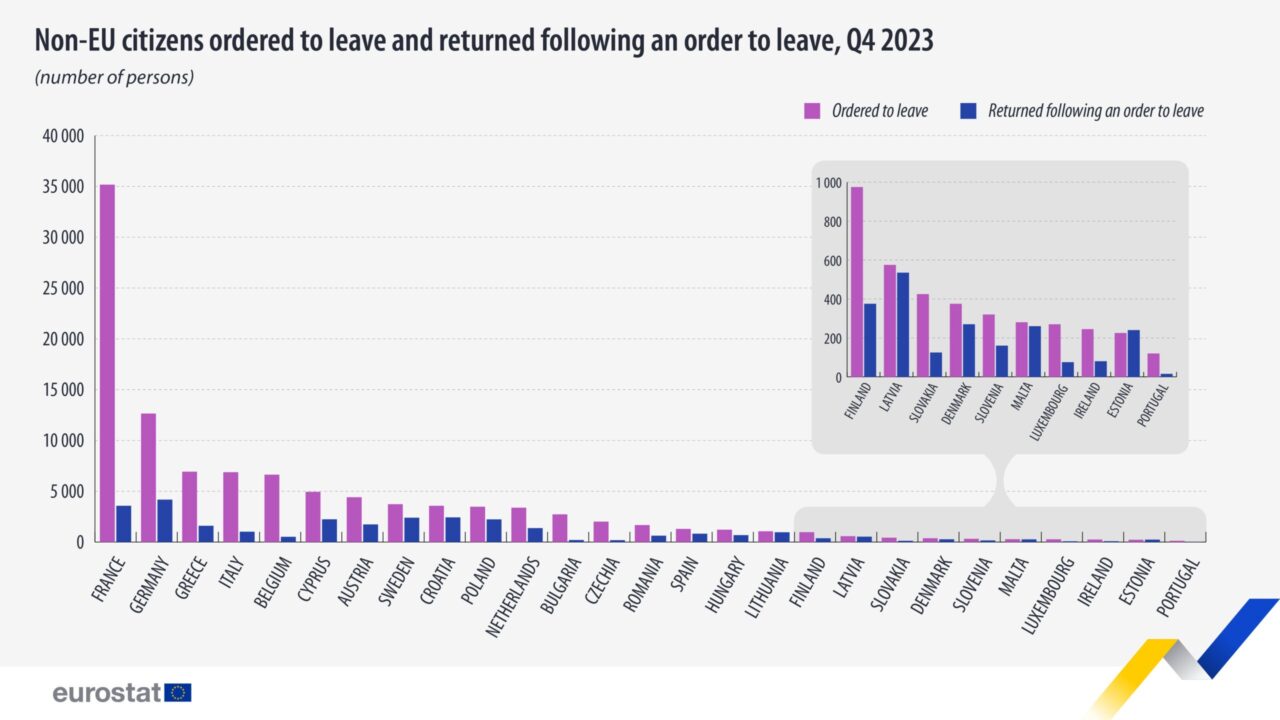In the fourth quarter of 2023, 105,585 non-EU citizens were ordered to leave an EU country, and a total of 28,900 were returned to another country following an order to leave.
Compared with the same quarter of 2022, the number of non-EU citizens ordered to leave decreased by 15%, while the number of people returned to another country rose by 8%.
Compared with the previous quarter of 2023, the number of orders to leave decreased (-2%) while the number of returns went up (+6%).
The majority of those returned in the fourth quarter of 2023, in accordance with an order to leave, were returned to countries outside the EU (77% of individuals) – (Source datasets: migr_eiord1 and migr_eirtn1).
Among those ordered to leave the territory of an EU country in this period, Moroccan citizens had the largest share of the total (8%), followed by Algerian citizens (7%), then Turkish and Syrian citizens (each 6%) and citizens of Georgia and Afghanistan (each 5%).
Among those returned to another country, most were citizens of Georgia (12%), followed by Türkiye (8%), Albania (7%) and Morocco, Algeria, and Moldova (each 4%).
Looking at national data, the highest numbers of non-EU citizens ordered to leave the territory of an EU country were recorded in France (35 175), Germany (12 650) and Greece (6 925).
Germany (4 180), France (3 570) and Croatia (2 430) recorded the highest number of people returned to another country (Source datasets: migr_eiord1 and migr_eirtn1.
More information
- Statistics Explained article on returns of irregular migrants – quarterly statistics
- Statistics Explained article on enforcement of immigration legislation statistics (annual data)
- Statistics Explained article on enforcement of immigration legislation statistics methodology
- Thematic section on managed migration statistics
- Database on managed migration statistics
Methodology notes
Due to temporary derogations, data by country of destination for Cyprus are not available. As a result, this country was not included in the calculation of returns to a third country.
Source – Eurostat

